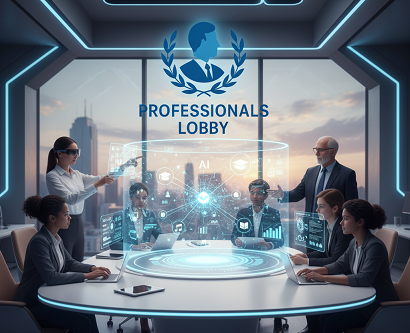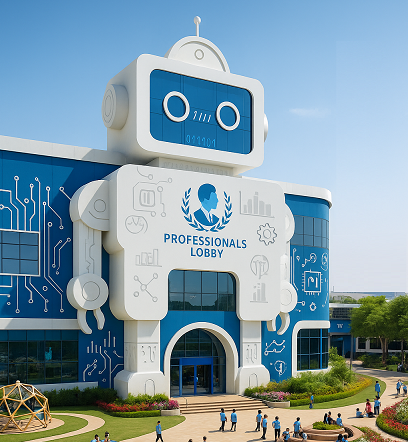We are at a pivotal moment in education. Artificial Intelligence (AI), once a futuristic possibility, is now reshaping how students learn, how teachers teach, and how educational institutions function. As we move deeper into the 21st century, the demands on learners and educators are changing rapidly: personalization, adaptability, inclusivity, real-world skills, and ethical awareness are no longer optional extras, but essential. AI offers unprecedented potential to meet those demands.
Key Takeaways:
- AI enables truly personalized learning paths for every student
- Intelligent content generation saves teachers time and enhances materials
- Automated assessment provides immediate, actionable feedback
- AI promotes inclusivity and accessibility in education
- Ethical implementation is crucial for successful AI integration
Quick Navigation
The Opportunities: What AI Enables in Teaching & Learning
Artificial Intelligence is not just another educational technology—it represents a fundamental shift in how we approach teaching and learning. From personalized learning paths to intelligent content creation, AI is creating opportunities that were previously unimaginable in traditional educational settings.
Personalized and Adaptive Learning
AI systems can assess in real time a student's prior knowledge, learning pace, strengths and weaknesses. They adjust content, suggest remedial materials, and advance students when ready. This moves beyond "one-size-fits-all" instruction toward truly individualized learning experiences.
Real-time Adaptation
Content adjusts dynamically based on student performance
Progress Tracking
Continuous monitoring of learning patterns and outcomes
Custom Pathways
Individual learning journeys based on unique needs
AI Tutoring System in Action
Student attempts problem
AI analyzes response pattern
System adapts difficulty level
Provides targeted feedback
Intelligent Tutoring Systems (ITS)
Carnegie Learning
AI-powered math tutoring that adapts to individual learning styles
89% improvement in test scoresCentury Tech
Uses cognitive neuroscience and AI to create personalized learning paths
Reduces teacher workload by 6 hours/weekSquirrel AI
Chinese adaptive learning system with proven results across subjects
2.5x learning efficiency gainsUAE Implementation: Adaptive Math Program
A Dubai private school implemented an AI-powered math tutoring system across middle school grades. Within one semester, students using the adaptive platform showed 34% greater improvement in standardized test scores compared to traditional instruction methods. The system identified specific knowledge gaps for each student and provided targeted exercises, while teachers received detailed analytics to inform their instruction.
Intelligent Content Generation & Curriculum Design
Generative AI can help create lesson plans, quizzes, interactive materials, multimedia content, simulations, virtual labs, and more. Teachers save valuable time, and content can be diversified to appeal to different learning styles while maintaining educational standards.
AI-Generated Educational Content
Lesson Plans
Structured teaching outlines with learning objectives
Assessments
Quizzes, tests, and formative assessment items
Simulations
Interactive virtual labs and experiential learning
Multimedia
Educational videos, infographics, and visual aids
Dynamic Curriculum Adaptation
Current Events Integration
AI scans news and research to suggest relevant updates
Local Context Customization
Adapts examples and case studies for cultural relevance
Skill Gap Analysis
Identifies emerging competencies needed for future jobs
Automation of Assessment and Feedback
Traditional Assessment
- Delayed feedback (days or weeks)
- Standardized for all students
- Focus on final outcomes
- Limited diagnostic information
- Teacher time-intensive
AI-Enhanced Assessment
- Immediate, actionable feedback
- Personalized evaluation criteria
- Focus on learning process
- Detailed analytics and insights
- Automated routine grading
AI Feedback Systems
Writing Analysis
Grammar, structure, argument strength, and style suggestions
92% accuracy in identifying issuesMathematical Reasoning
Step-by-step solution analysis and misconception identification
87% correct error diagnosisCode Evaluation
Programming logic, efficiency, and best practices feedback
95% comparable to expert reviewPredictive Analytics for Early Intervention
AI systems analyze patterns in student engagement, assessment performance, and participation to identify at-risk students long before traditional warning signs appear. This enables proactive support and targeted interventions.
Enhancing Engagement, Creativity, and Critical Thinking
Immersive Learning
Virtual and augmented reality experiences that bring abstract concepts to life
- Historical recreations and cultural experiences
- Scientific simulations and virtual labs
- Architectural and design walkthroughs
Gamified Learning
Game mechanics that motivate and engage students in learning activities
- Progress tracking and achievement systems
- Collaborative challenges and competitions
- Immediate feedback and reward structures
Critical Thinking Development
AI tools that encourage analysis, evaluation, and creative problem-solving
- Socratic questioning and dialogue systems
- Scenario-based learning and case studies
- Argument analysis and logical reasoning tools
The Evolving Role of Educators
Traditional Teacher
- Primary knowledge source
- One-size-fits-all instruction
- Focus on content delivery
- Assessment as evaluation
- Classroom manager
AI-Enhanced Educator
- Learning facilitator and coach
- Personalized guidance
- Focus on higher-order skills
- Assessment as feedback tool
- Mentor and inspiration
Inclusivity, Accessibility, and Equity
AI-Powered Accessibility Tools
Speech Recognition
Voice-controlled interfaces for students with mobility challenges
Real-time Captioning
Automatic transcription for hearing-impaired students
Translation Services
Instant translation for multilingual classrooms
Visual Assistance
Image description and navigation aid for visually impaired
Closing Educational Gaps
By personalizing instruction and resources, AI helps reduce learning gaps associated with socioeconomic, geographic, or individual differences. Students who need extra help can get it precisely when needed, while those ready to advance can do so without being held back.
Key Challenges & Risks in AI Education Implementation
While the potential is enormous, integrating AI into education isn't without significant challenges. Ignoring these risks undermines the benefits and can lead to unintended negative consequences.
Teacher Readiness and Training
High PriorityMany educators lack training and confidence in AI tools, leading to underutilization or incorrect implementation.
Solution Approach:
- Comprehensive professional development programs
- Peer mentoring and collaborative learning
- Gradual implementation with ongoing support
Ethical Implementation
High PriorityAlgorithmic bias, data privacy concerns, and transparency issues require careful management.
Solution Approach:
- Regular bias auditing of AI systems
- Clear data governance policies
- Student and parent education on digital rights
Infrastructure and Access
Medium PriorityUnequal access to technology can widen existing educational inequities.
Solution Approach:
- Phased implementation starting with well-resourced pilots
- Public-private partnerships for technology access
- Offline-capable AI tools for low-connectivity areas
Academic Integrity
Medium PriorityGenerative AI tools can be misused for plagiarism and unauthorized assistance.
Solution Approach:
- AI literacy and ethical use education
- Assessment redesign focusing on process over product
- AI detection tools with appropriate safeguards
Comprehensive Risk Mitigation Framework
Policy Development
Create clear guidelines for AI use, data handling, and ethical implementation
Stakeholder Engagement
Involve teachers, students, parents, and community in decision-making
Continuous Monitoring
Regular assessment of AI system performance and impact
Adaptive Implementation
Adjust approaches based on feedback and emerging best practices
Implementation Roadmap for Educational Institutions
Strategic Implementation Framework
Assessment & Planning
- Conduct needs analysis and readiness assessment
- Establish clear goals and success metrics
- Develop implementation timeline and budget
- Identify pilot programs and early adopters
Infrastructure & Tool Selection
- Evaluate and select appropriate AI tools
- Ensure technical infrastructure readiness
- Establish data governance and security protocols
- Develop integration plans with existing systems
Capacity Building
- Comprehensive teacher training programs
- Student and parent orientation sessions
- Technical support team development
- Ongoing professional learning communities
Pilot Implementation
- Launch controlled pilot programs
- Collect data and stakeholder feedback
- Refine approaches based on results
- Develop scaling strategy
Full Implementation & Optimization
- Scale successful initiatives institution-wide
- Continuous improvement and optimization
- Regular impact assessment and reporting
- Knowledge sharing and community building
Typical Implementation Timeline
Measuring Success: Key Performance Indicators
Student Outcomes
- Academic achievement growth
- Skill development progression
- Engagement and participation rates
- Course completion and success rates
Teacher Effectiveness
- Time saved on administrative tasks
- Quality of instructional materials
- Professional growth and satisfaction
- Adoption and usage rates of AI tools
Institutional Impact
- Equity and inclusion metrics
- Cost efficiency and ROI
- Stakeholder satisfaction
- Innovation culture development
The Future of AI in Education
Artificial intelligence in education promises nothing less than a transformation: of learning experiences; of teaching methodologies; of the very nature of what it means to be educated in a rapidly changing, interconnected world. But the promise will be realized only if institutions, educators, policy makers, and societies act with vision, care, and responsibility.
The AI-Enhanced Classroom of 2030
Fully Personalized Learning Ecosystems
Each student follows a unique learning path optimized by AI, with human teachers providing mentorship and guidance.
Global Collaborative Classrooms
AI-powered translation and cultural adaptation enable seamless collaboration across borders and languages.
Lifelong Learning Pathways
Education becomes a continuous journey with AI guiding skill development throughout careers and lives.
Begin Your AI Education Transformation Journey
Professionals Lobby provides comprehensive consulting services to help educational institutions successfully implement AI technologies. From strategic planning to teacher training and impact assessment, we support every step of your transformation journey.
Schedule Consultation


